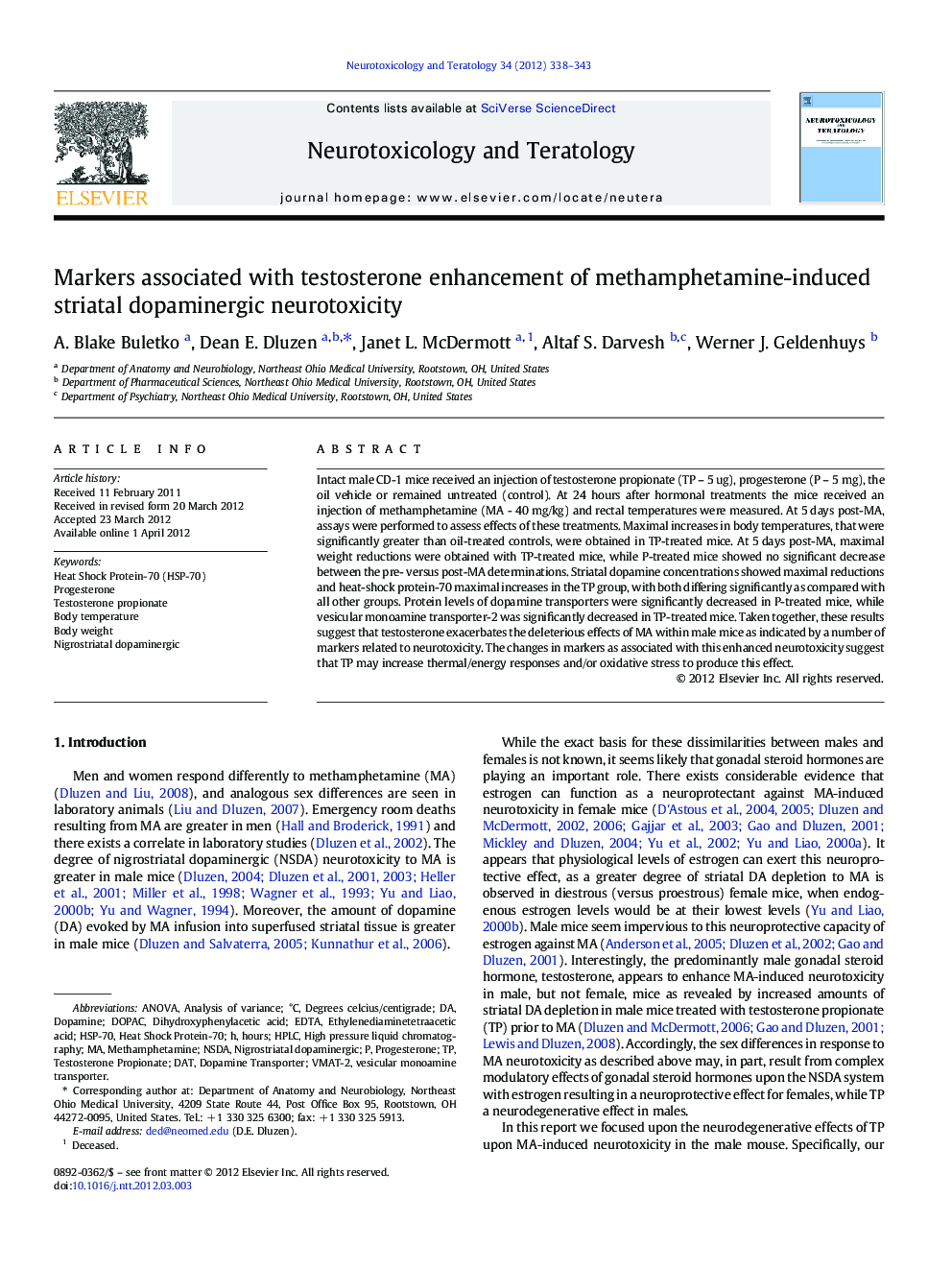| Article ID | Journal | Published Year | Pages | File Type |
|---|---|---|---|---|
| 2591226 | Neurotoxicology and Teratology | 2012 | 6 Pages |
Intact male CD-1 mice received an injection of testosterone propionate (TP – 5 ug), progesterone (P – 5 mg), the oil vehicle or remained untreated (control). At 24 hours after hormonal treatments the mice received an injection of methamphetamine (MA - 40 mg/kg) and rectal temperatures were measured. At 5 days post-MA, assays were performed to assess effects of these treatments. Maximal increases in body temperatures, that were significantly greater than oil-treated controls, were obtained in TP-treated mice. At 5 days post-MA, maximal weight reductions were obtained with TP-treated mice, while P-treated mice showed no significant decrease between the pre- versus post-MA determinations. Striatal dopamine concentrations showed maximal reductions and heat-shock protein-70 maximal increases in the TP group, with both differing significantly as compared with all other groups. Protein levels of dopamine transporters were significantly decreased in P-treated mice, while vesicular monoamine transporter-2 was significantly decreased in TP-treated mice. Taken together, these results suggest that testosterone exacerbates the deleterious effects of MA within male mice as indicated by a number of markers related to neurotoxicity. The changes in markers as associated with this enhanced neurotoxicity suggest that TP may increase thermal/energy responses and/or oxidative stress to produce this effect.
► Male mice received testosterone prior to methamphetamine. ► Testosterone increased body temperature and HSP-70. ► Testosterone decreased body weights, striatal DA and VMAT-2. ► These markers are associated with enhanced neurotoxicity.
